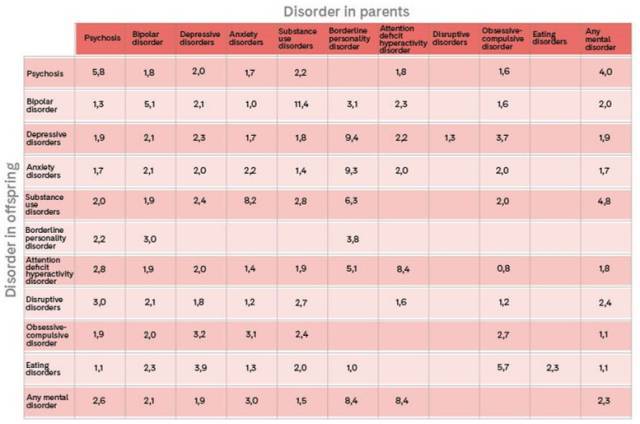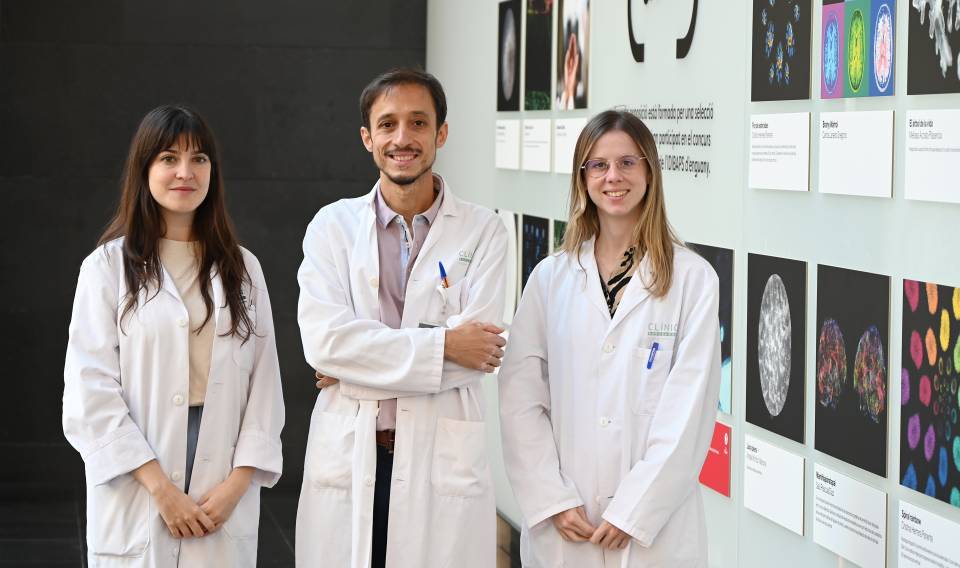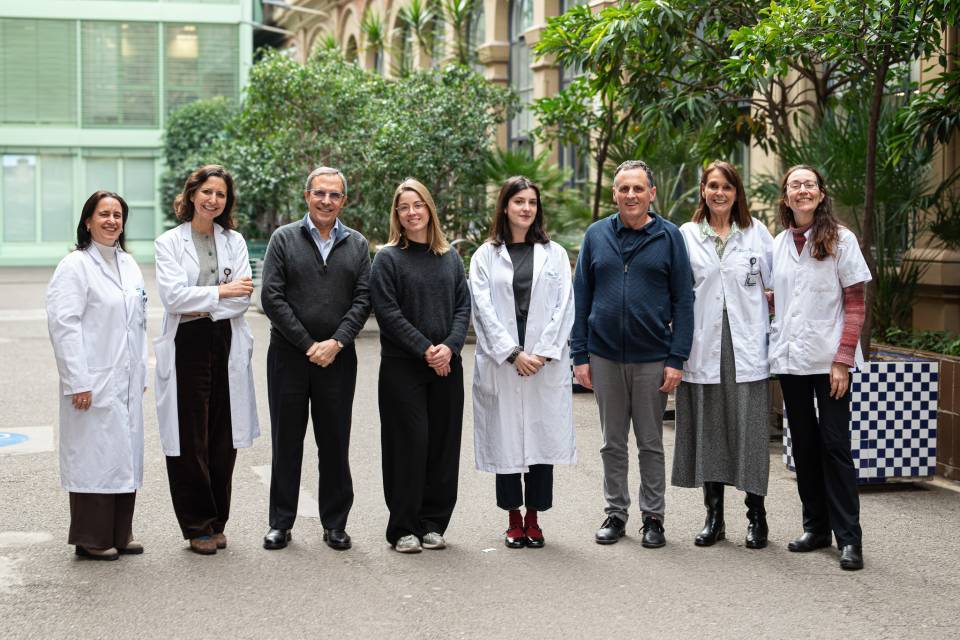Published in the journal World Psychiatry, the study included 3.2 million children of parents with mental disorders from 211 previous studies and determined that they face a greater risk of suffering from the same disorder as their parents, but also from any other type of mental illness.
For example, for children of parents with psychosis, the risk of psychosis is multiplied by 5.8, but the risk of suffering from another disorder is multiplied by 2.6. The case of children of parents with bipolar disorders is similar: they have five times more risk of developing this disease and twice the risk of having some other type of mental condition.

Joaquim Raduà, the co-author of the study and head of the IDIBAPS research group Imaging of mood- and anxiety-related disorders (IMARD), a researcher at CIBERSAM and associate professor at the University of Barcelona, says: “This study provides, to mental health professionals, descriptive tables that show the average risk that children of people with a mental disorder have for developing different mental health disorders. This information can be very useful in deciding what preventive interventions to recommend, such as the type of psychotherapy, physical exercise, etc. In addition, it shows the need to systematically explore the mental health of patients' children.”
"We must bear keep in mind that until the 55% of the children of parents with mental disorders will develop one in their lifetime, which is why it is so important to make a complete synthesis of the risks that help us improve prevention techniques", adds Lydia Fortea, researcher of the IDIBAPS IMARD group and co-author of the study.
While the individual studies conducted so far focused mainly on depressive disorders, bipolar disorders or psychotic disorders, this large meta-analysis has made it possible to group together and include other disorders like attention deficit hyperactivity disorder, anxiety, addictions, eating disorders, obsessive compulsive disorder and borderline personality disorder.
"Analyzing this broad spectrum of diseases has allowed us to interrelate them and not focus only on the parents' disease, thus filling the gap in the literature. It also tells us that preventive interventions should not be focused on a single diagnosis, but should be transdiagnostic", points out Maria Ortuño, researcher of the Multimodal neuroimaging in high risk and early psychosis from IDIBAPS and co-author of the study.
"It is important to point out that this study investigates the average risk of all children of parents with mental disorders, but the individual risk can be substantially different, as it also depends on other factors such as cannabis consumption, lack of physical exercise, poor metabolic health, or obesity. This is why we recommend that children of parents with mental disorders avoid these risk factors in particular", concludes Joaquim Raduà.
Study of reference
Uher R, Pavlova B, Radua J, Provenzani U, Najafi S, Fortea L, Ortuño M, Nazarova A, Perroud N, Palaniyappan L, Domschke K, Cortese S, Arnold PD, Austin JC, Vanyukov MM, Weissman MM, Young AH, Hillegers MHJ, Danese A, Nordentoft M, Murray RM, Fusar-Poli P. Transdiagnostic risk of mental disorders in offspring of affected parents: a meta-analysis of family high-risk and registry studies. World Psychiatry. 2023 Oct;22(3):433-448. doi: 10.1002/wps.21147. PMID: 37713573; PMCID: PMC10503921.




